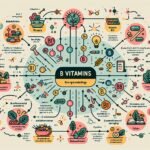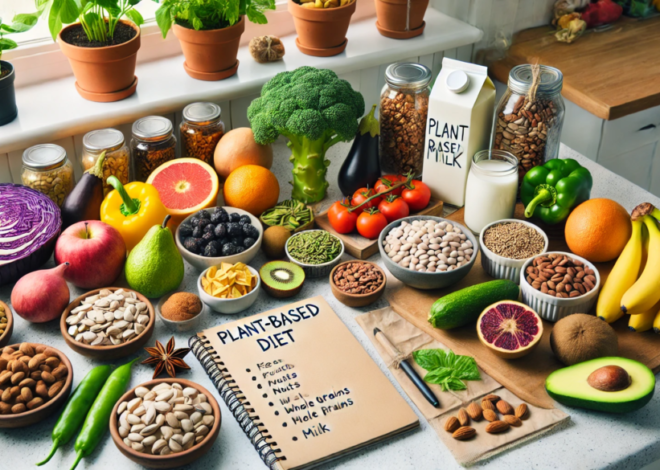
How to Create a Balanced Diet on a Budget
Balanced diet on a budget isn’t just a possibility; it’s a necessity for many. Contrary to popular belief, eating nutritiously doesn’t have to break the bank. In fact, research shows that planning meals and buying in bulk can significantly lower expenses while ensuring balanced nutrition. This guide will explore practical tips for crafting a nutritious diet without overspending, providing strategies on choosing affordable yet healthy foods, meal prepping, and reducing food waste. Dive in to discover how you can enjoy wholesome meals without straining your wallet.
Understanding the Basics of a Balanced Diet
A balanced diet is crucial for maintaining good health and well-being. It provides your body with the essential nutrients needed for growth, energy, and repair. A healthy diet can improve your mood, boost your energy levels, and help you maintain a healthy weight. Let’s explore what makes a balanced diet and how you can achieve it.
Key Nutrients Essential for a Balanced Diet
Your body requires a combination of key nutrients to function optimally. These include:
- Proteins: Essential for building and repairing body tissues. Sources include meat, fish, eggs, beans, and legumes.
- Carbohydrates: The primary source of energy. Opt for whole grains, fruits, and vegetables.
- Fats: Necessary for energy and cell function. Include healthy fats from nuts, seeds, and avocados.
- Vitamins and Minerals: Support various bodily functions. Consume a range of fruits, vegetables, and lean meats.
- Water: Vital for hydration and metabolic processes. Aim for at least 8 glasses per day.
Recommended Daily Intake for Adults
Understanding recommended daily intake helps maintain balance and prevent nutrient deficiencies. Here’s a brief guide:
- Proteins: 46 grams for women, 56 grams for men.
- Carbohydrates: 225 to 325 grams, depending on calorie intake.
- Fats: 44 to 77 grams of total fat per day.
- Fiber: 25 grams for women, 38 grams for men.
- Vitamins and Minerals: Varies; consult dietary guidelines or a nutritionist.
Importance of a Diverse Diet
A diverse diet ensures you receive a full spectrum of nutrients and prevents monotony. Incorporating a variety of foods can:
- Improve Nutrient Intake: Different foods offer different nutrients.
- Prevent Boredom: Keeps meals interesting and satisfying.
- Enhance Gut Health: Diverse foods promote a healthy microbiome.
- Reduce Health Risks: Lowers the risk of chronic diseases.
Budget-Friendly Grocery Shopping Tips
Eating a balanced diet doesn’t have to break the bank. With a few strategic approaches, you can make nutritious choices without overspending. Let’s explore some practical tips to help you save money while maintaining a healthy diet.
Planning Meals Ahead to Save Money
Meal planning is a powerful tool for cutting costs and reducing food waste. Consider these strategies:
- Create a Weekly Menu: Plan meals based on what’s on sale.
- Prepare a Shopping List: Stick to it to avoid impulse buys.
- Batch Cook: Cook large portions and freeze leftovers.
Buying Seasonal Fruits and Vegetables
Seasonal produce is often cheaper and more nutritious. Here’s why you should focus on seasonal items:
- Cost-Effective: Lower prices due to abundant supply.
- Fresher Taste: Harvested at peak ripeness.
- Environmental Impact: Reduced carbon footprint from local sourcing.
- Variety: Encourages trying new fruits and vegetables each season.
Utilizing Coupons and Discounts
Take advantage of savings opportunities to stretch your grocery budget further:
- Digital Coupons: Save with apps and store websites.
- Store Loyalty Programs: Earn points and discounts.
- Buy in Bulk: Purchase staples in larger quantities to save over time.
Affordable Meal Prep Ideas for a Balanced Diet
Meal prepping can be a game-changer for your wallet and your health. With thoughtful planning, you can prepare nutritious meals that cater to your dietary needs without compromising on flavor or cost. Let’s dive into some affordable and balanced meal prep ideas.
Quick and Healthy Breakfast Options
Start your day right with these budget-friendly breakfast ideas:
- Overnight Oats: Mix oats with milk or yogurt, top with fruits and nuts.
- Egg Muffins: Bake eggs with vegetables in a muffin tin for grab-and-go meals.
- Smoothie Bowls: Blend fruits and greens, garnish with seeds and granola.
Budget-Conscious Lunch and Dinner Ideas
Delicious meals don’t have to be expensive. Try these ideas:
- Stir-Fried Vegetables with Rice: Use a variety of seasonal veggies.
- Chickpea Salad: Combine chickpeas with diced vegetables and vinaigrette.
- Bean Chili: Cook beans with spices and tomatoes for a hearty meal.
Cost-Effective Snacks and Beverages
Keep your energy up with these affordable snack and drink options:
- Homemade Trail Mix: Mix nuts, seeds, and dried fruits.
- Vegetable Sticks with Hummus: Crunchy veggies paired with protein-packed dip.
- Infused Water: Add slices of citrus or cucumber to water for a refreshing drink.
Conclusion
Eating a balanced diet on a budget involves strategic planning and smart shopping. Focus on purchasing whole foods like grains, beans, and seasonal produce, which offer nutritional value at lower costs. Buy in bulk and utilize discounts or sales to maximize savings. Meal planning and preparing meals at home can reduce food waste and expenses. Incorporating plant-based proteins can also be a cost-effective way to maintain a nutritious diet.
FAQ
What are some affordable foods for a balanced diet?
Affordable foods like beans, lentils, oats, brown rice, and eggs offer excellent nutrition without breaking the bank. Stock up on seasonal vegetables and fruits, which often cost less. Whole grains and frozen veggies are budget-friendly staples that provide essential nutrients.
How can I create a weekly meal plan for a balanced diet on a budget?
Start by planning meals around sales and seasonal produce. Use a mix of proteins, grains, and vegetables to ensure variety. Cook in batches to save both time and money. A simple strategy involves preparing versatile ingredients that can be transformed into different meals throughout the week.
What are budget-friendly sources of protein for a balanced diet?
Inexpensive protein options include chickpeas, kidney beans, lentils, and canned tuna. Eggs and peanut butter also provide cost-effective protein. These choices ensure you get quality protein without overspending.
Are there cost-effective ways to include fruits and vegetables in a balanced diet?
Buying frozen or canned fruits and vegetables can be more affordable and last longer than fresh. Explore local farmer’s markets for deals on produce. Growing your own small garden can also be a fun and economical way to access fresh produce.
How can I save money on groceries while maintaining a balanced diet?
Shop with a list to avoid impulse buys. Compare prices at different stores and use coupons when possible. Preparing meals at home is often cheaper than eating out, and it allows for healthier choices. Bulk buying staples like grains and legumes is another effective strategy.
What are some tips for cooking nutritious meals on a tight budget?
Focus on simple recipes that require few ingredients. Use leftovers creatively to prevent waste. Invest in versatile staples like rice and pasta. Incorporating spices can enhance flavors inexpensively. Cooking at home more often increases nutrient intake while reducing costs.











